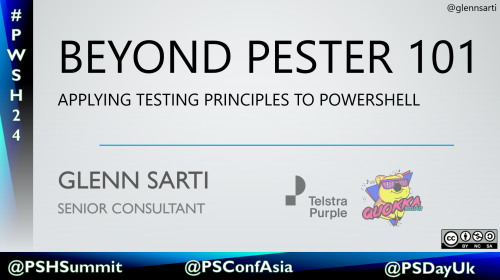Sharing: What’s in it for me!?
Sharing. It’s one of the four pillars of CAMS. We consume so much shared content but have we ever thought about sharing from the point of view of the Sharer? Why should I share? If I’m constantly sharing information what do I get out of it? What’s in it for me!?
This ignite talk looks at sharing through the eyes of a Sharer. What benefits do they receive out of sharing? What cultural or psychological benefits are there?
Recording - Not recorded
Transcript
CAMS. The original four pillars of DevOps: Culture, Automation, Measurement and Sharing. And yet, I went back through all of the previous DevOpsDays talks, less than 1 percent were about Sharing! So today I want to help even that score by appealing to your selfish side and answer the question: “Sharing. What’s in it for me?”
And, strangely enough, the most selfish way to share, is not to share with anyone. Instead share with a Rubber Duck!
Rubber ducking is a technique that as you share a problem or idea with the Duck, it helps the solution become clearer. You start talking through a complex problem and mid sentence, bing a light bulb goes off, and the answer just appears!
There are many thoughts about why this works but here’s two:
-
The first, Your mouth is slower than your brain. When you are speaking to your duck, it forces your brain to slow down and process information in depth.
-
The second, you need to take into account what the Duck knows. It forces you to think from another point of view and then see other solutions.
By taking the time to explain your problem to a duck and provide the context that the duck needs to understand, you are telling a story, and story telling is a very powerful tool. We are wired to listen and to tell stories, and there’s one story that is the most important to all of us. It’s our own story - This is autobiographical storytelling.
Dr. Sherry Hamby and her team has researched the power of emotional, autobiographical storytelling
… Research shows that even brief exercises can have substantial impacts on psychological and physical health even months after
She found four benefits
-
You will find your own voice when you write your story, because stories have structure. They have a beginning, middle and end.
-
And the act of writing your story will clarify what’s important to you. It re-affirms your values
-
When you share your story, you realise your words can be a positive power on other people
-
And all of this builds a sense of well-being, which then builds resilience for when adversity next strikes.
Being resilient to adversity is important for our mental health.
Dr. Hamby says:
Resilience is strengthened by recognizing that we are all experts in our own lives and we all have something to share with others.
So how do you start writing stories then? It’s quite possible you’re already doing this. If you have a blog, I’m sure you’re writing stories you want to tell, that matter to you, about problems you overcame. Or an incident post-mortem, or narrative based documentation, or answering questions on Stack Overflow. These are all forms of stories. And this is also backed up by data …
Doctor Nicole Forsgren found that when leaders give their teams autonomy in their work, it leads to feelings of trust and voice, which then positively influences organizational culture. This is the same Voice that is found during autobiographical storytelling.
Or perhaps use your Voice and become a mentor … Kris Howard talked about the many benefits of sharing your story: You can build your confidence, perspective, communication and leadership skills. Create a sense of adventure and just plain connect with other humans!
Now… as much as I’m painting this whole sharing thing as rainbows and unicorns, there’s a darker side here which we have to talk about.
We all have the ability to share, but it’s not safe for all of us to do so
Daily… we see occurrences where someone shares something and they are harassed, bullied and threatened. People are sharing their stories, their thoughts and ideas; and never get to reap any of the benefits, because it’s not safe to do so.
Here in Australia, 91% of employees believe that mental health is important and yet ONLY 52% believe that their workplace is mentally healthy. 1 in 5 people take time off work due to mental unhealth.
And mental heath and psychological safety isn’t just important for own well being. It’s a predictor of high performing teams. Not your technical achievements, or org structure, or mission statement, but team dynamics and safety.
And so, if you have a voice in your community, if you enjoy the privilege of being able to share your stories without retribution, then you have an obligation to afford others the same - Give others the space, and most importantly, the safety to share their stories too.
So to answer: Sharing, what’s in it for me? Solving my own problems, thinking from other people’s perspectives, increasing my resilience and mental health! Sounds great doesn’t it!!!
So as we move into Open Spaces and maybe start sharing our own stories, I’d like to leave you a final thought from the poet James Russell Lowell,
Not what we give, but what we share,
For the gift without the giver is bare;
Who gives them self with their alms feeds three,
Them self, their hungering neighbor, and IT.
Thankyou





Comments